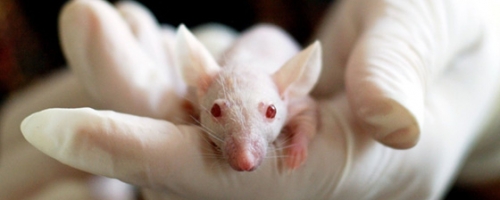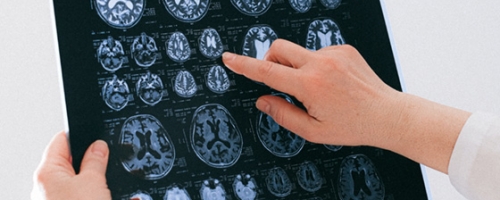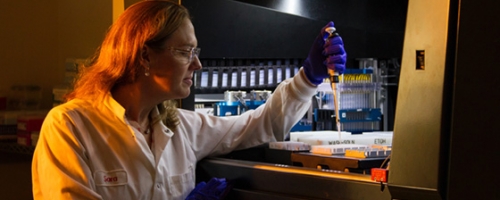Home / Research /
 Core services provided include experimental design support, grant development, equipment and space access, staff training, research expertise and best practices, and the coordination of UW resources. We also provide support for early career researchers. Scientific core support facilities are as follows: Animal Behavior, Brain Imaging, Clinical Translational and Genetics.
Core services provided include experimental design support, grant development, equipment and space access, staff training, research expertise and best practices, and the coordination of UW resources. We also provide support for early career researchers. Scientific core support facilities are as follows: Animal Behavior, Brain Imaging, Clinical Translational and Genetics.
Other IDDRC activities include training researchers in various disciplines, disseminating research findings, and maintaining linkages to clinical training activities and exemplary service programs to maximize translational impact.
Find out more about becoming an IHDD Research Affiliate.
Core Facilities
Our Core Facilities
Our Collaborative Research Areas:
This CRA will be addressing a range of biological causes and possible treatment options for Autism Spectrum Disorder. All levels of analysis are involved including research on genetic factors and corresponding biological pathways, electrophysiology and brain imaging studies, gene-environment interactions, and pharmacological treatments.
For information, please contact: Sara Jane Webb, Ph.D., Professor of Psychiatry and Behavioral Sciences, Coordinator
The Brain Malformation Disorders Collaborative Research Area brings together a broad range of affiliates to study all aspects of early brain development that result in brain malformations.
Members of this CRA study early forebrain developmental disorders such as agenesis of the corpus callosum, mid-hindbrain disorders such as rhombencephalosynapsis, Dandy-Walker malformation and Joubert syndrome, disorders of brain size including microcephaly and megalencephaly, and cortical malformations such as lissencephaly and polymicrogyria. A major focus of this CRA is to identify single gene defects that cause these disorders. Immediate benefits include diagnostic and carrier testing, focused evaluation for associated medical complications, more precise recurrence risk counseling and improved prognostic information. Genetic causes also provide an entry point to define the biological mechanisms involved.
For information, please contact: Daniel Doherty, M.D., Ph.D., Professor, Pediatrics, Coordinator
This CRA fosters the common interest of faculty members studying the cellular and molecular mechanisms involved in the pathogenesis and regeneration/recovery in a variety of acquired disease and injury states that result in IDD. The group includes investigators studying preterm birth, traumatic brain and spinal cord injury, ischemia, hemorrhage, CNS infections, autoimmune diseases of the CNS, tumors, and radiation induced injury to the developing CNS. Goals of the group include developing novel means to study the CNS response to injury or infection in vivo, identifying therapeutic targets to maximize functional outcome following CNS injury, and identifying biological factors that contribute to preterm delivery.
For additional information, please contact: Sandra Juul, M.D., Ph.D., Professor, Pediatrics, Coordinator
The Consortium on Early Childhood Intervention (CECI) CRA brings together behavioral scientists with interests in developing, conducting, and evaluating systematic, comprehensive, evidence-based, experiential early interventions carried out within a developmental framework. CECI focuses on diverse populations including children at risk for developmental problems due to biological and/or environmental factors, those with established developmental delays or disabilities, and those with autism spectrum disorder.
Members of this CRA address a wide range of topics emphasizing the effects of planned interventions and naturally occurring environmental influences on all aspects of children’s development, especially those affecting children’s cognitive, social-emotional, social cognitive, and language development. Special topics of interest include differential sensitivity to intervention, parent stress and its association with intervention approaches and effectiveness, new measures for behavioral phenotyping, trauma and developmental delay, peer relationships and inclusion, and leading edge biomarkers of special relevance to behavioral scientists.
The integration of developmental, intervention, and implementation science during the early childhood period provides an overarching framework for this CRA.
For additional information, please contact: Monica Oxford, Ph.D., Research Professor of Family and Child Nursing, Coordinator
The general goal of this CRA is to enhance our understanding of the mechanisms by which developmental toxicants affect the central nervous system during prenatal and postnatal growth. Projects are designed to promote research that reveals the neurobehavioral effects associated with exposure to alcohol, environmental chemicals, and therapeutic drugs during pregnancy and childhood, to develop procedures for evaluating the risk of developmental toxicants, to promote adequate policies to protect public health, and to educate health care providers and the general public on the teratogenic potential of alcohol, drugs, and chemicals in an effort to prevent IDD.
For additional information, please contact:
- Thomas Burbacher, Ph.D., Professor, Environmental and Occupational Health Sciences, Co-Coordinator
- Susan J. Hemingway, Ph.D., Professor, Epidemiology and Adjunct Professor, Pediatrics, Co-Coordinator
Members of this CRA are engaged in a wide variety of projects aimed at decreasing the morbidity and mortality of epilepsy including its potential contribution to the development of IDD.
Goals of this CRA include: (1) developing new knowledge of the physiological properties of neural cells involved in the initiation of seizures along with identifying the molecular and cellular changes associated with the risk of acquiring epilepsy following traumatic brain injury or an episode of status epilepticus, (2) increasing our understanding of the genetic contributions to epilepsy, and (3) developing evidenced based approaches to the treatment of epilepsy, especially within the population with co-morbid IDD.
Key Faculty Investigators:
- Melissa Barker-Haliski, Ph.D., Research Assistant Professor of Pharmacy
- William Catterall, Ph.D., Professor and Chair, Pharmacology
- Evan Eichler, Ph.D., Professor, Genome Sciences
- Franck Kalume, Ph.D., Associate Professor of Neurological Surgery
- Kathleen Millen, Ph.D., Associate Professor, Pediatrics
- Edward Novotny, M.D., Professor, Neurology, Pediatrics
- Jeff Ojemann, M.D., Professor, Neurological Surgery
- Nicholas Poolos, M.D., Ph.D., Professor, Neurology
- Nephi Stella, Ph.D., Professor of Pharmacology and Psychiatry and Behavioral Sciences
- Jeff Tsai, M.D., Ph.D., Associate Professor, Neurology
- John Welsh, Ph.D., Professor, Pediatrics
- H. Steve White, Professor and Chair of Pharmacy
This CRA aims to understand the inner ear – both the auditory and vestibular side, with an emphasis on basic and translational research. Questions aimed at the characterization of normal and abnormal auditory development, examination of biological therapies for inner ear hair cell damage, investigation of neural mechanisms of the balance system in humans and non-human primates, are being asked in order to help people who have difficulty with hearing and balance.
By performing behavioral measures of hearing and balance in human subjects, investigators also examine infant development of auditory abilities, the impact of hearing and balance disorders, and the optimization of a cochlear implant devices for children and adults who are cochlear implant recipients. These studies include: a) prevention and treatments for patients with hearing loss and balance disorders, (b) outcome measures of adults and children with cochlear implants, and (c) models of signal processing in, and perception with, cochlear implants as well as (d) the development of a vestibular implant.
Laboratories of CRA members are active with undergraduate and graduate students, visiting scholars, engineers, research scientists, and research subjects.
For additional information, please contact: Jay Rubinstein, M.D., Ph.D., Professor, Bioengineering and Otolaryngology/Head and Neck Surgery, Coordinator
The CRA on Learning Disabilities is currently focused on a major translational effort to address a range of learning disabilities. This interdisciplinary research group is working to integrate and translate information on behavioral, genetic, and neurological levels to establish evidence-based interventions with emphasis on phenotypic profiles related to dysgraphia (impaired handwriting), dyslexia (impaired word decoding and spelling), and oral and written language learning disability. Related work focuses on the genetics of speech sound disorder, dyslexia, language impairment, and cognitive endophenotypes such as sequential processing and temporal aspects of processing.
For additional information, please contact: Adrian K.C. Lee, Sc.D., Professor of Speech & Hearing Sciences, Coordinator





